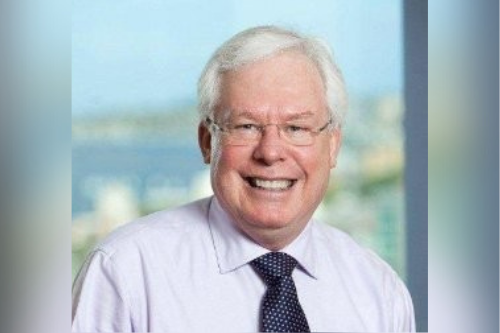

Respected insurance industry veteran, Dallas Booth (pictured), wants the COVID-19 event insurance announced by the Victorian government to be seriously considered by other Australian states.
“Especially for some of these bigger events that cost a lot of money to stage,” he said. “It’s a huge loss if they have to cancel at the last minute.”
The insurance will be available in December through the Victorian Managed Insurance Authority (VMIA). The cover will be available for creative, sporting, business and community events held in the state that have an estimated value of between $20,000 and $10 million.
Last month, Booth left his role as CEO of the National Insurance Brokers Association (NIBA) and turned independent consultant. He said “for the next little while” he wants to use his LinkedIn account to post on interesting developments in the insurance sector to encourage discussion.
Victoria’s program will last 12 months and is designed to give confidence and protect against losses in cases where an event is cancelled due to public health measures. The state government is providing up to $230 million of coverage through to September 2022.
In his posting, Booth noted that the British government announced a similar 12-month scheme in September. For that program, event organisers are required to take out normal event cancellation cover, and a COVID Reinsurance Scheme will provide additional protection for COVID related losses.
“The idea of event cancellation specifically for COVID related losses I think is a really important issue, but it’s pleasing to see that it has been developed in the UK and the Victorian government has made an announcement. I just thought it’s worthwhile raising the matter a bit further and trying to generate more conversation about it all,” said Booth.
More than a year after the COVID-19 pandemic hit Australia, the live entertainment industry continues to call for a federal insurance scheme to recover from the impacts of the pandemic.
However, the Morrison government has rejected these calls. According to The Guardian, the Department of Prime Minister and Cabinet claimed that market failure is not an argument for government intervention “if the failure does not have a material impact on the functioning of the wider market.”
Booth said the leisure, tourism and entertainment sectors were “absolutely impacted” by the COVID lockdowns. He gave the example of the Byron Bay Blues Festival. The event was cancelled by the NSW health minister less than 24 hours before it was due to start because of the discovery of a local COVID-19 infection. Organisers were expecting about 15,000 people.
“That was a massive, multimillion dollar loss for the promoters. There were people already there, ready for the celebrations.”
However, Booth stopped short of supporting a federally backed insurance scheme for the entertainment sector, a move supported by music industry bodies.
“The Commonwealth would no doubt say that if the states are essentially forcing these things to close, then it should be the states that should be providing the support to the sector. I think there’s merit in that argument and that sort of links the issue directly with where the issue arises, which is state-based public health orders,” he said.
Booth also wants to wait and see before supporting an extension of this event cancellation insurance beyond 12 months.
“I think that [12 months] gives everybody a chance to see what happens with the virus and the impact on the community. We can measure the effectiveness of the vaccinations and then governments can review in 6 or 8 months whether it [events] still need support or whether things are getting back underway again without a huge risk of cancellation at the last minute.”
The former NIBA CEO is also calling on brokers to keep event organisers and industry bodies informed about the state of the entertainment insurance market.
“I think the important role for the brokers is to work very closely with the large event clients, but also working with industry bodies to make sure they are fully aware of the state of the market, what’s becoming available, what’s not available, and to assist the event organizations and the event industry bodies to take a really informed position to government on these matters.”
Booth said that will allow governments to make informed decisions from an insurance perspective about where there are gaps in the market and where support might be needed.
“Brokers are absolutely in tune with the state of the market and as the intermediary they’re fully aware of the clients’ needs and the risks that the clients are taking,” he said.
